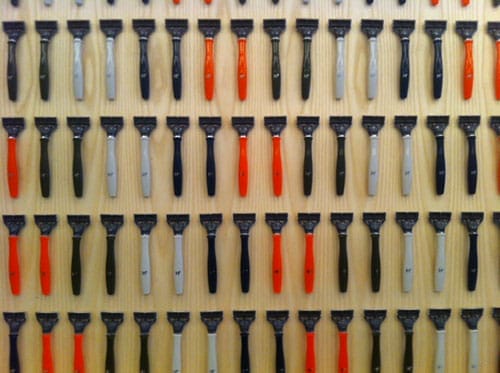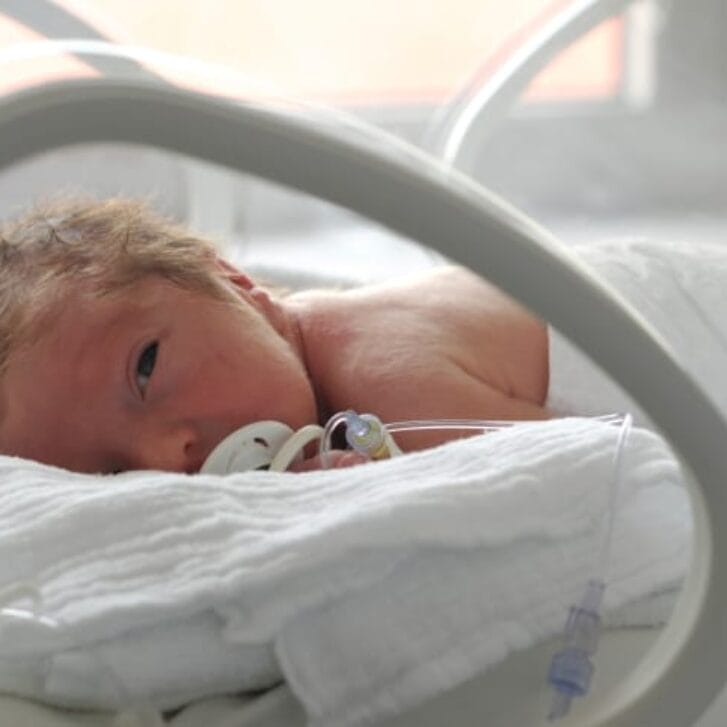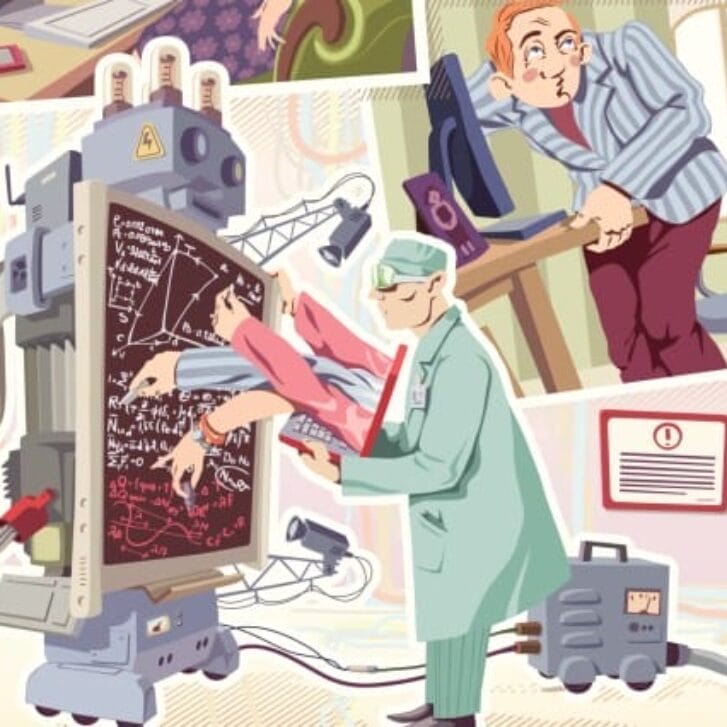Don’t look now, but an entrepreneur alum returned to campus to give of his time and expertise to current students. In this case, Jeff Raider, WG’10, co-founder of the men’s grooming retailer Harry’s, was holed up most of the day on the fourth floor of Vance Hall on Feb. 4 participating in the Entrepreneur-in-Residence program organized by Wharton Entrepreneurship. But Raider, and colleague and fellow grad Jason Semine, L’10, WG’10, took a break among the half-hour meetings with student startup dreamers to have lunch with the Penn Founders’ Club.
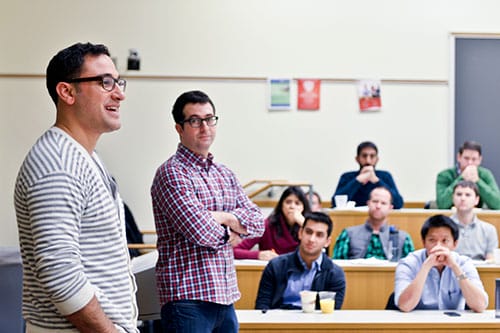
Jason Semine, L’10, WG’10 (left) and Jeff Raider, WG’10, co-founder of Harry’s, address the Founders’ Club. Photo credit: Shira Yudkoff.
What follows is a terse, if not snappy, recap of the hour-long, mostly Q&A meet-up between the Harry’s guys and the pizza-eating students packing the Huntsman Hall lecture room—with the students asking the questions (paraphrased here) and the entrepreneurs responding.
Q: Why the barbershop [Harry’s Corner Shop, an actual, operating shop at 64 MacDougal Street in NYC]?
A: Originally, according to Raider, they thought of the barbershop in Chelsea as a pop-up shop, but soon realized there was no better way to learn firsthand what their customers like and don’t like (as well as learn from the barbers too). So the barbershop is there to stay, if not be replicated elsewhere. An interesting tidbit shared by Semine [Harry’s head of retail] is that Harry’s creative agency partner found the current corner location when Harry’s was one month off the ground and knew it was perfect for what they were looking to do.
Q: How do you suppose to enter a men’s shaving market with reusable products where two megaplayers dominate a world moving ever-more toward disposables?
A: The global market for razors is about a $15 billion market—within which there is plenty of room for a direct-to-consumer company that listens and responds to its clientele’s needs.
“If we take 10 percent of this market, we’ll be a massive company,” Raider said.
Q: Why buy a $100 million German razor company? [Harry’s bought Feintechnik, the factory that had been its razor supplier, in January.]
A: Controlling its supply of razors removes Harry’s greatest operational risk. Plus, the German company’s existing, profitable European operations can provide cash flow.
Q: What’s in it for Feintechnik?
A: A man named Mr. Becker runs the factory. “Everybody calls him Mr. Becker,” said Raider. Even Raider, Becker and company see Harry’s as unleashing a pent-up creative capacity in their firm.
Q: How do you come up with these names [first Warby Parker, then Harry’s]?
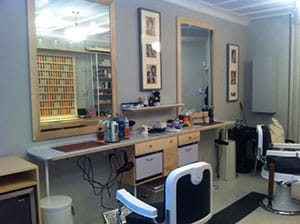
Inside Harry’s Corner Shop
A: Raider ascribes their success to a three-part naming exercise:
1. Come up with a list of names and run them by friends, family and colleagues. Which names resonate?
2. Ask them why one name resonates more than another. What did they associate with the names?
3. See which ones stick. Days later, which names can’t they get out of their heads?
One of the general lessons gleaned from my day with Harry’s is that entrepreneurs should be prepared for the rigors of product testing. Raider recommended no one ever testing as many different razor blades as he did on his face. And it sounds like the Harry’s men essentially lost control over their own hair styles for the weeks that they were testing barbers for Harry’s Corner Shop.




















